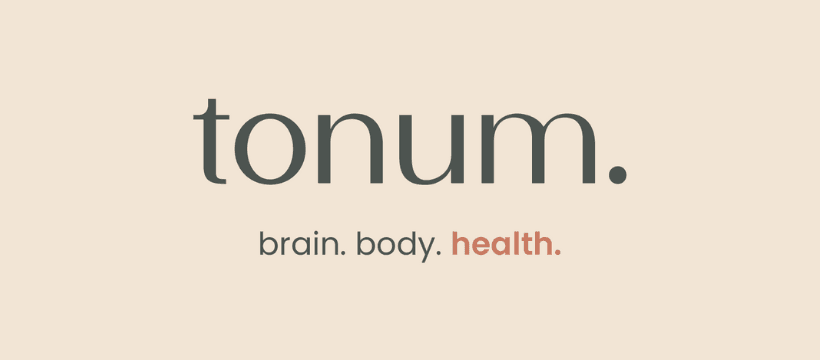Healthy habits can help you live longer and feel better every day. Simple changes in your daily routine can make a big difference in your overall health. In this article, we will explore different habits that can boost your well-being and help you enjoy a longer, healthier life.
Key Takeaways
- Eating a balanced diet rich in plants and superfoods can improve your health.
- Regular physical activity, even simple movements, can keep your body strong.
- Taking care of your mental health through mindfulness and social connections is important.
- Good sleep habits are essential for your overall well-being.
- Avoiding harmful habits and having regular health checkups can lead to a longer life.
Nourishing Your Body with a Balanced Diet
The Benefits of Plant-Based Eating
Eating more plant-based foods is a great way to get antioxidants. These help reduce stress in your body and can slow down aging. Half of your plate should be fruits and vegetables. Also, how you cook your food matters. Baking and broiling are better than frying.
Incorporating Superfoods into Your Meals
Superfoods are packed with nutrients. They can boost your health in many ways. Some superfoods to add to your meals are:
- Blueberries
- Kale
- Quinoa
- Salmon
These foods can help you feel better and stay healthy.
Hydration: The Key to Vitality
Drinking enough water is very important. It helps your body work well and keeps you feeling good. Aim to drink at least 8 cups of water a day. You can also eat water-rich foods like cucumbers and oranges.
Staying hydrated is one of the simplest ways to improve your health. Make it a habit to drink water throughout the day.
The Importance of Regular Physical Activity
Finding Joy in Movement
Staying active is one of the best things you can do for your health. People who exercise regularly tend to live longer and have a lower risk of many diseases. You don't need to run marathons or spend hours at the gym. Even simple activities like gardening or walking can make a big difference.
Incorporating Exercise into Daily Tasks
You can easily add more movement to your day without much effort. Try taking the stairs instead of the elevator, or walk to nearby places instead of driving. These small changes can add up and help you stay active without even thinking about it.
The Role of Strength Training
Strength training is also important for your health. It helps build muscle, which can keep you strong and make everyday tasks easier. You don't need fancy equipment; even body-weight exercises like push-ups and squats can be very effective.
Regular physical activity can extend your lifespan. Exercising more than 150 minutes per week is best, but even small amounts can help.
Prioritizing Mental Health and Stress Management
Mindfulness and Meditation Practices
Mindfulness and meditation are powerful tools for managing stress. Even a few minutes a day can make a big difference. Try yoga, deep breathing, or simply sitting quietly to focus on your breath. These practices can help you stay calm and centered.
The Power of Social Connections
Having strong social connections is important for mental health. Spend time with friends and family, join clubs or groups, and make an effort to meet new people. These connections can provide support and reduce feelings of loneliness.
Balancing Work and Leisure
It's important to find a balance between work and leisure. Make sure to schedule time for activities you enjoy, whether it's a hobby, sport, or just relaxing. This balance can help reduce stress and improve your overall well-being.
Taking care of your mental health is just as important as taking care of your physical health. Make time for activities that help you relax and recharge.
The Role of Quality Sleep in Longevity
Establishing a Sleep Routine
Creating a consistent sleep schedule is essential for long-term health. Going to bed and waking up at the same time every day helps regulate your body's internal clock. A regular sleep pattern can improve the quality of your sleep and overall well-being.
The Impact of Sleep on Overall Health
Getting enough sleep is crucial for your body to function properly. Lack of sleep can lead to serious health issues like heart disease, diabetes, and obesity. On the other hand, too much sleep can also be harmful, potentially leading to depression and low physical activity.
Tips for Improving Sleep Quality
- Stick to a sleep schedule
- Create a relaxing bedtime routine
- Avoid caffeine and heavy meals before bedtime
- Make your sleep environment comfortable
Prioritizing sleep can significantly improve your quality of life and longevity. Aim for 7-8 hours of sleep each night to reap the benefits.
Avoiding Harmful Habits and Embracing Positive Ones
The Dangers of Smoking and Excessive Drinking
Smoking and drinking too much alcohol can seriously harm your health. Smoking is a leading cause of lung cancer and heart disease. Drinking too much alcohol can damage your liver and increase the risk of accidents. It's important to avoid these habits to live a longer, healthier life.
The Benefits of Moderation
Living a balanced life is key. This means not overdoing things like eating junk food or spending too much time on screens. Instead, try to eat healthy foods and stay active. Moderation helps you enjoy life without harming your health.
Building Resilience and Positive Thinking
Being strong in tough times and thinking positively can make a big difference. When you face challenges, try to stay calm and look for solutions. Positive thinking can help you feel better and stay healthy.
Small changes in your daily habits can lead to big improvements in your health and happiness. Start with one change and build from there.
The Impact of Regular Health Checkups
Preventive Screenings and Vaccinations
Regular health checkups are essential for catching potential health issues early. Preventive care, like cancer screenings and vaccinations, can detect diseases before they become serious. This early detection can save you from physical, financial, and emotional stress. Common screenings include colonoscopies, mammograms, and pap smears.
The Importance of Dental Health
Dental health is a crucial part of your overall well-being. Regular dental checkups can prevent cavities, gum disease, and other oral health problems. Good dental hygiene can also reduce the risk of heart disease and diabetes.
Staying Informed About Your Health
Annual checkups help you stay informed about your health. They allow you to build a relationship with your doctor, who can track your health over time. This relationship helps your doctor understand your health baseline and notice any changes that might need attention.
Regular health checkups are a proactive way to maintain your health and catch potential issues early. They are an investment in your long-term well-being.
Cultivating a Sense of Purpose and Joy
Finding Meaning in Daily Activities
Engaging in activities that hold personal meaning can significantly enhance your life. Having a clear sense of purpose has been linked to lower risks of stroke, heart disease, and even Alzheimer's disease. Whether it's through hobbies, volunteer work, or personal projects, finding what drives you can lead to a more fulfilling life.
The Benefits of Hobbies and Interests
Hobbies are not just pastimes; they are essential for mental and emotional well-being. They provide a break from daily stress and offer a sense of accomplishment. From gardening to painting, or even hiking, these activities can boost your mood and overall happiness.
Practicing Gratitude and Positivity
Taking time each day to reflect on what you're grateful for can have a profound impact on your outlook on life. Simple practices like keeping a gratitude journal or sharing positive moments with friends and family can foster a more positive mindset. This, in turn, can improve your mental health and longevity.
Embracing a sense of purpose and joy in your daily life can lead to a longer, healthier existence. By finding meaning in what you do, enjoying hobbies, and practicing gratitude, you can cultivate a life filled with happiness and fulfillment.
Conclusion
In summary, adopting healthy habits can greatly improve your chances of living a long and fulfilling life. Simple daily routines like eating a balanced diet, staying active, managing stress, and getting enough sleep can make a big difference. Remember, it's not just about making big changes overnight but incorporating small, consistent actions into your everyday life. By doing so, you can enhance your overall well-being and set yourself on a path to longevity. Stay informed, listen to your body, and don't hesitate to seek advice from healthcare professionals to ensure you're on the right track.
Frequently Asked Questions
What are the benefits of a plant-based diet?
Eating a plant-based diet can help you stay healthy. It can lower the risk of heart disease, diabetes, and some cancers. Plus, it's good for the environment.
How can I add superfoods to my meals?
You can add superfoods like berries, nuts, and leafy greens to your meals. Try putting berries in your breakfast cereal or adding nuts to your salads.
Why is staying hydrated important?
Drinking enough water helps your body work well. It keeps your skin healthy, helps you think clearly, and gives you energy.
How can I make exercise a part of my daily routine?
You can make exercise a habit by doing something you enjoy. Try walking, biking, or dancing. Even small activities like taking the stairs can help.
What are some tips for better sleep?
To sleep better, try to go to bed and wake up at the same time every day. Make your bedroom dark and quiet. Avoid screens before bedtime.
How often should I go for health checkups?
It's good to see your doctor at least once a year. Regular checkups can catch problems early and keep you healthy.
























